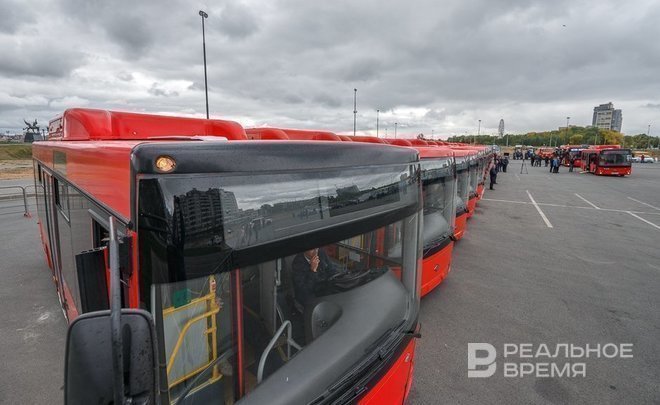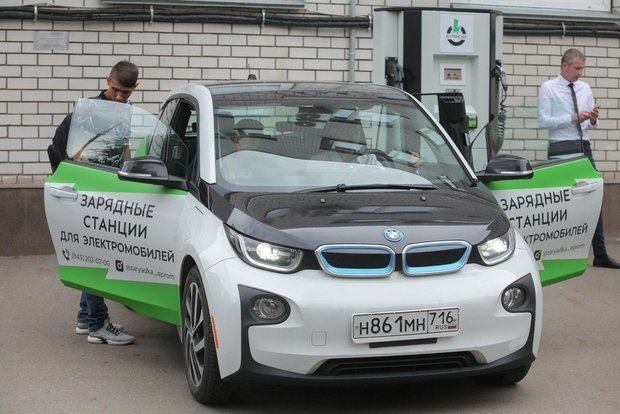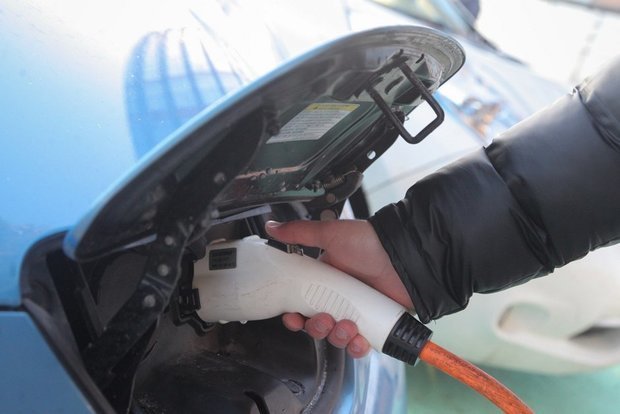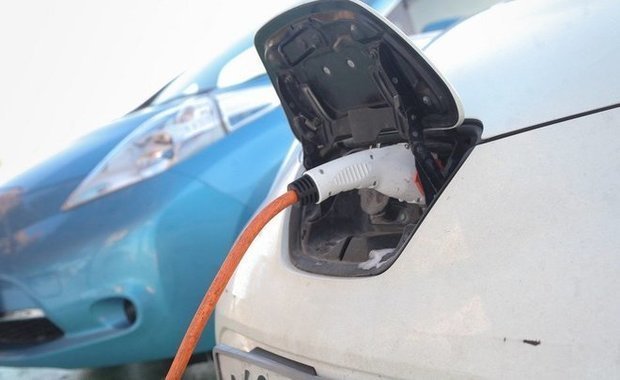Kazan relies on gas-engine buses in public transport development
Charging network for electric vehicles in Kazan is going to be built around residential buildings, offices, and shopping centres

Kazan is not yet going to follow Moscow's example in transferring all public transport to electric traction, which means that the deployment of a network of charging stations for electric vehicles may take time. Due to the small fleet of cars, and there are only 450 of them, there are now 60 points of paid charging in the capital of the republic, and this is the “ceiling”. Meanwhile, Moscow managed to build an infrastructure of 400 stations and kept charging free. “Kazan relies on gas-engine buses in the development of public transport," Tatarstan Minister of Transport and Road Management Farit Khanifov told Realnoe Vremya, making it clear that it is more reliable to switch to gas.
Kazan is not in a hurry with electric transport
The global trend of switching to electric vehicles has reached the regions. This year, 872 stations are going to be built in the country as part of the federal programme for subsidising charging infrastructure. This is twice as much as last year, when 439 stations were installed, Chairman of the Association for the Development of Electric, Unmanned, Connected Transport, and Infrastructure AETI Iya Gordeeva said during the thematic session of Kazan Digital Week 2023.
If an explosive growth of the network happens, charging stations will be installed not only along highways, but also in residential complexes and parking lots. So, Tatarstan, as one of the pilot regions, is going to increase their number to 200 — the network will be 4 times wider than the existing gas-powered one. By the way, Kazan does not particularly favour stations — there are 46 subsidised stations (they are 60 in total), Deputy Head of the Ministry of Industry and Trade of the Republic of Tatarstan Marat Minibayev clarified to Realnoe Vremya.

However, electric cars themselves remain exotic, there are very few of them among the residents of the republic, while the fleet of cars on gas is approaching 20 thousand (the total number of passenger cars is 1,3 million). Where does the love for electric cars come from?
The surge in activity is explained by federal subsidies, explained the head of AETI, Iya Gordeeva. After the approval of the concept for the development of electric transport, the investor is subsidised up to 60% of the costs for the purchase of charging equipment and technological connection to the networks. The expert did not name the exact amount of expenses, but earlier it was reported about state investments of 8,1 billion rubles until 2024. At the federal level, the state programme is considered promising and is going to be extended until 2030.
“Recently, the Ministry of Economic Development has taken the initiative to extend the programme for another 5 years," said the head of AETI.
Next year, the subsidy mechanism will definitely work, she assured. In other words, the charging grid threatens to hit the competitors of traditional fuel. “For example, Pskov is a tourist centre, but there is not a single charging station," Iya Gordeeva lamented.
Charging should be near home

At the same time, he did not hide that the loading of stations now remains low. The reason, in his opinion, is an unsuccessful location, so he suggested placing charging stations near home: “In general, in the classic version, an electric car should be charged at home, at night," he explained in a conversation with Realnoe Vremya. “After all, the process of charging an electric car takes time (at so-called slow stations with a capacity of up to 30 kW, one will have to spend several hours). Even arriving at a “fast” station (150 kW) will have to spend at least 20-30 minutes. Not everyone is ready for this," he explained. However, it is difficult to get the consent of the owners of residential buildings, the speaker admitted.
Ministry of Construction is not against installing a charging station at the expense of communal networks
The construction of charging stations next to residential buildings is especially aggressively lobbied by the regions, Iya Gordeeva said. But then the Federal Ministry of Construction and the Ministry of Energy diverged in their positions. According to the interlocutor of the publication, the Ministry of Construction is not against installing a charging station at the expense of communal networks (the station becomes a network consumer). “But, on the other hand, at any moment there may be an excess of the energy load at home," she fears. Being the head of AETI, she is against such a placement option.
“Fortunately, it is not the Ministry of Construction that regulates these issues," she clarified. “The management company should facilitate the installation of charging stations, but only subject to the approval of the meeting of the owners of the residential building. No one can repeal the Constitution. The right of private ownership of the property of the apartment building cannot be taken away.”
In this, she agrees with the Ministry of Energy of the Russian Federation, which indicated that the power supply should be uninterrupted.

Cancel fire bans on the “minus 1 floor” and other benefits
But the federal authorities are ready to make concessions when placing charging stations in underground parking lots. According to Gordeeva, they are ready to cancel fire bans on the installation of the station “on minus 1 floor”. But they must be connected to energy monitoring systems.
It's easier with open parking lots. Here it is proposed to provide for the technical possibility of installing charging stations in all parking spaces by conducting cable channels. In the future, the possibility of direct contracts of electric car owners with sales companies is allowed, she added. The final decisions will be known in the near future, the head of AETI summed up. But it is obvious that charging stations will soon appear near new buildings, as they are supported by the developers themselves. In addition, the Tatarstan government has recently obliged them to provide for such opportunity.
Cost of charging in Kazan is 17 rubles per 1 kW/h, and in Moscow — for free
“There are 450 electric vehicles in Kazan, about 60 charging stations. The situation is normal for the current moment. But we understand that there will be more electric cars. It is necessary to install more slow charging stations in the adjacent territories and near offices where a person spends a lot of time. Now the cost of 1 kW/h with a “slow” charging of the car is 17 rubles, which in terms of costs is 2 times cheaper than gasoline," said Deputy Minister of Industry and Trade Marat Minibayev.

For comparison: residents of Moscow can use this service for free within the framework of the Moscow Energy programme. Accessibility is provided by charging infrastructure for public transport. “We have noticed that over the past 1,5 years, the number of electric vehicles in Moscow has increased by 2 times. A clear jump occurred at the end of last year. Previously, it was said a lot that insufficient development of charging infrastructure hinders the development of electric transport. We see a clear effect that there is a connection," a representative of Rosseti (the operator of the Moscow programme) told a week ago in Kazan.
“Moscow has decided to replace all public transport with electric transport. As a first step, the replacement with electric buses began. Although there was a fork to go to water buses. As a result, the city's leadership decided to follow the path of global electrification of transport," he said.
As a result, three parks were built to charge about 700 units of electric buses. “This year, the second electric bus park has been opened in Mitino. This park has a history. Initially, it was planned for the maintenance of gas-engine equipment. Due to that the city decided to turn to electric traction, the gas engine fleet was replaced by an electric bus one," he said.
Kazan puts pressure on the gas
If there was a charging infrastructure for public transport in Kazan, then the transition for ordinary residents would be easier, the Tatarstan government agrees. But Kazan is not ready to buy electric buses following the example of Moscow. “The purchase of electric buses is hampered by high cost. Moscow can afford to buy, but we can't. They are expensive. Although the service is cheaper," explained Marat Minibayev. Partly for this reason, charging stations will be built around residential buildings, offices and shopping centres, counting on local movements within the city.
“Kazan relies on gas-engine buses in the development of public transport," Minister of Transport and Road Facilities of the Republic of Tatarstan Farit Khanifov added on the sidelines of the forum in an interview with our publication.

According to him, electric buses are really available only to rich regions. The reason is the high cost of charging batteries, not the KAMAZ equipment itself. He made it clear that it is better for Kazan residents to switch to gas, there will be no problems with refuelling. However, the lack of public charging infrastructure does not always slow down the transition of private owners to electric cars, Iya Gordeeva believes.